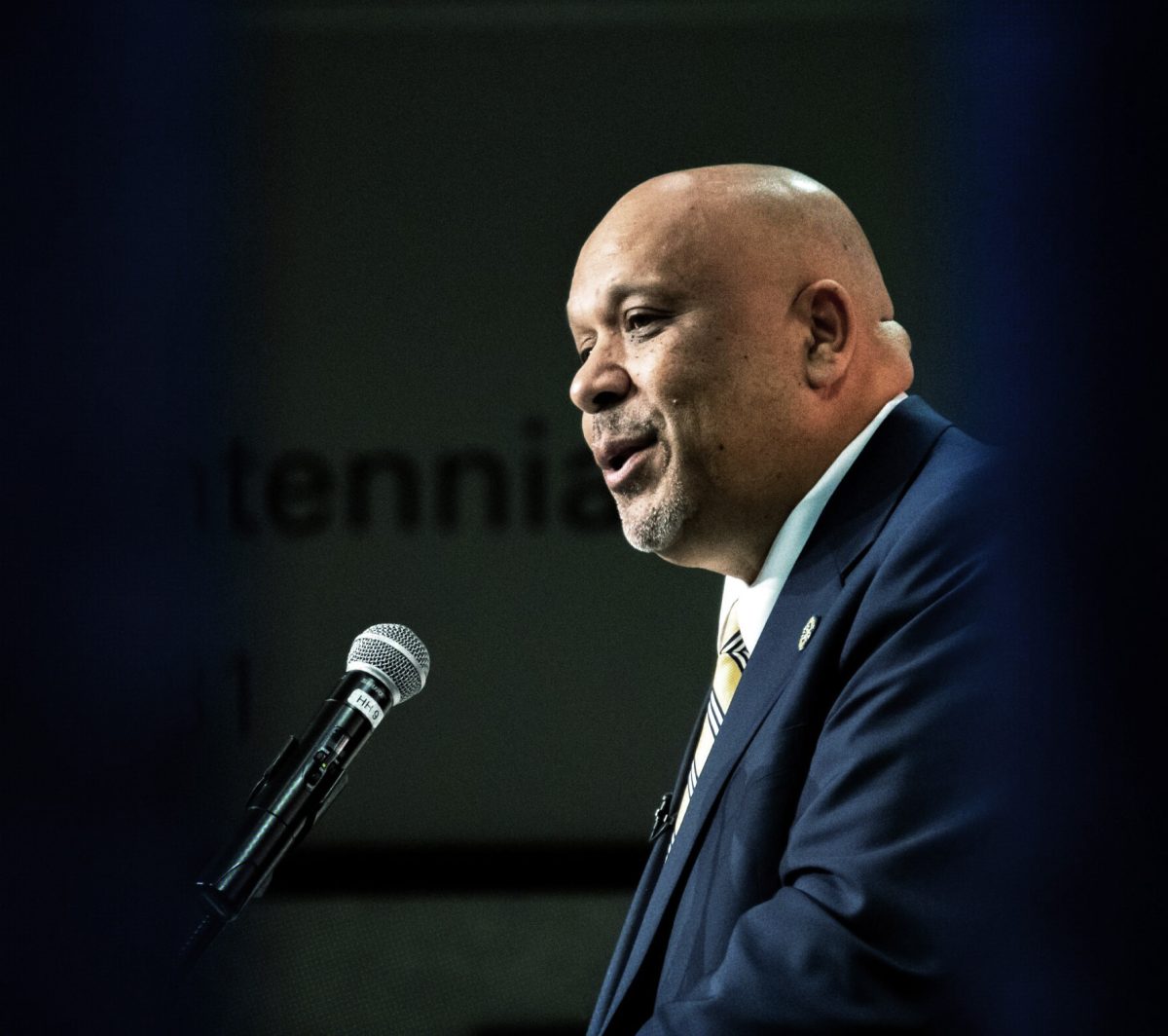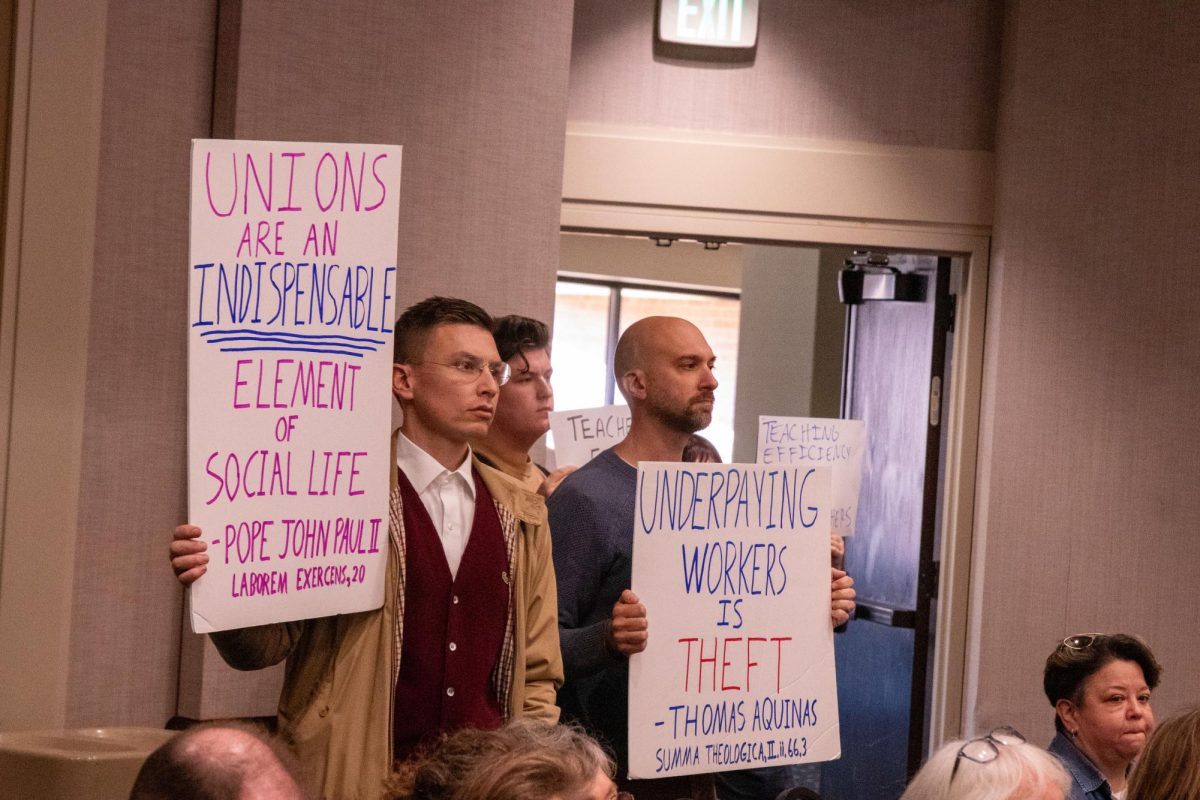Updates regarding the recent vote of no-confidence, workload changes and program cuts were presented at the University Academic Senate meeting Dec. 9. Here is what to know.
Vote of no-confidence
After the vote of no-confidence in Marquette University President Kimo Ah Yun and his Chief Operating Officer Joel Pogodzinski on Nov. 26, Chair of University Academic Senate Paul Gasser said the UAS executive committee, which consists of the provost, one dean and seven UAS members, had a meeting with the university board of trustees last Thursday.
“What I presented at the beginning of that was just a statement about where the motion of no-confidence came from,” Gasser said. “What I tried to get across was that it was an expression of concern on many fronts that have been developing from many years.”
Acting Provost Sarah Feldner said the University Faculty Committee on Budgets and Financial Planning also met with Pogodzinski after the vote.
Workload changes
Astrida Kaugers, chair of the University Board of Undergraduate studies, and Jennifer Ohlendorf, vice chair of UAS, proposed a resolution to request more communication between university administration and UAS about possible workload changes. The resolution was endorsed by the majority of the senate.
In November, Ah Yun, then acting president and provost, communicated with the deans of each college to discuss a possible change in faculty workloads. There were no documents or formal communication sent to any faculty explaining why the change was happening or how it would be implemented. However, Kevin Conway, university spokesperson, said in a statement that the process has been in the works for over a year.
Faculty across some colleges expressed concerns that this change would allow less time for research and require professors to teach more classes. However, Ah Yun said the ratio between research and teaching would be evaluated on a case-by-case level within each college.
This change is something that’s being evaluated as a way to cut costs in alignment with the “Securing Our Future” plan for 2031.
The resolution urged administration to hold off on implementation of workload changes until the university board of undergraduate studies and faculty council, which are both parts of UAS, are presented with how this change would cut costs and benefit administration.
It also asked that department chairs have input on the changes, and faculty council have an opportunity to give feedback and vote to approve possible workload changes.
Feldner said she’s planning on meeting with the chairs of each department to discuss the possible changes and hear feedback. She said she will also be meeting with the deans to discuss their progress on evaluating teaching loads.
“We’re encouraged by Sarah’s upcoming conversations and meeting with department chairs, because that seems to be very much aligned with the part of the resolution asking that department chairs and unit leaders are involved in this process,” Kaugars said.
Termination of individualized interdisciplinary minor
Kaugars announced that the individualized interdisciplinary minor in the College of Arts & Sciences has been officially terminated by a committee from the college, in alignment with Marquette’s strategic plan to cut the university’s spending by $31 million by 2031.
Students currently enrolled in the minor will be able to complete it, but it will not be offered for incoming students. The minor is geared toward giving students an opportunity to design their own minor in the college. The interdisciplinary major is being utilized, but the minor has not been.
Since 2015, the minor has declined in popularity from 10 students in 2015 to one student in 2023, and its low enrollment attributed to its termination.
Termination of certificates
Certificates and specializations were approved by the board of graduate studies to be cut beginning in fall of 2025. These include certificates and specializations in both the College of Business Administration and the College of Nursing.
These include: the accounting analytics certificate, business and managerial analytics certificate, leadership certificate, sports leadership certificate, nursing education specialization in Doctor of Nursing Practice, health systems leadership specialization and health systems leadership specialization in Master’s of Science in Nursing.
These cuts were in the works before “Securing Our Future,” but were evaluated as part of the budget cuts. The cuts were also approved by their respective colleges.
This story was written by Sophia Tiedge. She can be reached at sophia.tiedge@marquette.edu.














